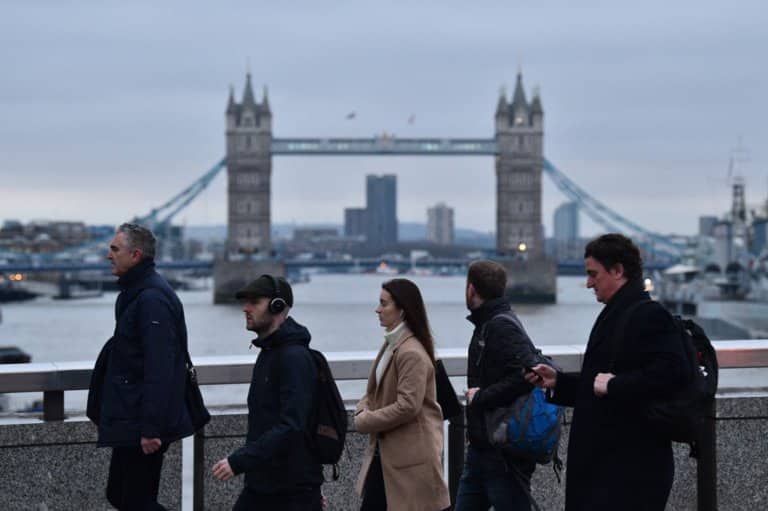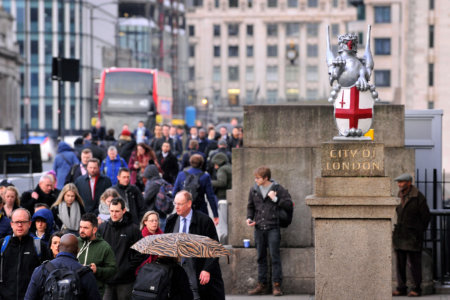
Given its strong economy, 1.5-million Indian-descent population, and a capital that’s the star and backdrop to so many fascinating books and films, the UK has long been a magnet for international students.
And thanks to the recently established UK graduate visa route, they can stay in the UK longer.
With this, students can stay in the country to work or look for work without being sponsored by a company.
Undergraduate and postgraduate students can work or look for work after their studies for a period of two years, while doctoral students will be granted three years.
This move was celebrated by many when it was announced, from students to universities and UK businesses.
It’s helped the UK welcome 605,130 international students in the 2020/21 academic year — surpassing its 600,000 target 10 years earlier than hoped.
But not everyone’s happy with the UK Graduate Visa route and how it’s attracting more international students to the UK.
Home Secretary planned to make changes towards the UK graduate visa
“Net migration” is ruffling feathers in the governing Conservative Party again. The term refers to the number of people moving in after deducting those who moved out.
In 2022, that number was a record 606,000. It’s a 24% hike from the year before.
While an Indian-descent Prime Minister and these numbers show a more diverse Britain, the Conservative Party wants lower net migration and has promised their voters they would use immigration to keep people from moving to the UK.
That includes international students.
In January, Home Secretary Suella Braverman tried to cut the UK Graduate Visa route from two years to six months and required graduates to get a work visa by employment in a skilled job.
The proposal, however, was “killed off” by Gillian Keegan (Secretary of State for Education), according to The Times.
Are there that many international students in the UK?
Thousands of international students flock to UK universities each year.
During the 2019-20 academic term, there were 538,615 international students in the country; 142,985 of these were from the European Union (EU) and 395,630 came from outside the EU, according to government data.
Statistics from the Home Office published in February 2023 showed that 490,763 sponsored study visas were granted to main applicants in 2022, the highest number since there were comparable records in 2005.
This was 29% more than the year before and 26% higher than the number granted in 2019, the last pre-pandemic year.
What’s more, a new report from the Association for Graduate Careers and Advisory Services (AGCAS) showed that 72% of those employed via the UK Graduate Visa route were working in graduate-level roles — with business, IT, engineering, and education being the most prominent sectors.

International students can apply to work in the UK without a sponsored visa for up to 3 years with the UK graduate visa. Source: Daniel Leal/AFP
Applying for a UK graduate visa: Everything you need to know
The best part about the UK graduate visa is that students don’t need a pre-existing job offer to apply, giving them the flexibility to work and switch jobs according to any level of salary or skill, or choose to be self-employed.
Students can part-time study, English language courses, or evening classes too.
In theory, they can take any route of study that does not require sponsorship under the student visa route.
Here are more must-know facts about applying for a UK Graduate Visa in 2023:
How can I qualify for the UK graduate route visa?
You must have a valid Tier 4 visa at the time of your application.
You’ll need to show that you’ve completed the whole of your course in the UK as a student, apart from permitted study abroad programmes or remote study due to COVID-19, for which specific concessions have been agreed.
You’ll also need to show your Confirmation of Acceptance for Studies (CAS) number, which would have been issued by your university along with your Student or Tier 4 visa.
The qualification named on your CAS should be the same one you have recently completed and would be applying for the Graduate route under.
If you’ve lost or do not know your CAS number, contact your university.

It will cost around 1,340 pounds to apply for a UK graduate visa. Source: Tolga Akmen/AFP
How much does it cost?
It costs 715 pounds to apply for this graduate visa.
You’ll also have to pay the full amount for the Immigration Health Surcharge, which will cost you 624 pounds annually. It’s a hefty cost, but paying this will give you full access to the UK’s National Health Service, the same as any UK permanent resident.
If you have anyone who relies on you for financial support (known as “dependants” in official speak), they’ll need to pay the processing fee and Immigration Health Surcharge, too.
You’re not allowed to bring on new dependants — only those who have already come to the UK under your current student visa.
Can I qualify for the visa even if I’ve been studying remotely due to the pandemic?
You might be able to do so.
If you studied fully online, or through a combination of online and in-person classes, you can still get on the UK Graduate visa route if you meet its other requirements under the UK’s COVID-19 student visa concessions.
How do I apply for the UK graduate visa?
There are two ways to apply for a UK graduate visa: online or in person.
For the former, head to the GOV.UK website, where you’ll find instructions on how to create a UK Visas and Immigration account. Then, you’ll need to use a mobile app to verify your identity.
Have your current visa permit (like a Biometric Residence Card) on hand for this. You would have received this card when you first entered the UK to study.
If your application is successful, you’ll be issued an eVisa or new Biometric Residence Card, depending on your country of origin.
If you can’t apply digitally, you can visit a UK Visas and Citizenship Application Services Centre (UKVCAS).
You can search for your nearest UKVCAS centre here.

Graduates can pursue any line of work in the UK, regardless of skill or salary. Source: Oli Scarff/AFP
When can I apply for the UK Graduate route visa?
Once your uni confirms you’ve successfully completed your programme.
That doesn’t mean you need to have graduated. You can submit an application as soon as your final course results have been sent to you.
It’s important that you’re in the UK when you submit your application. If you apply from outside the UK, your graduate visa will be rejected and you may lose eligibility to apply for the route altogether.
Stay in the UK while you wait for the decision of your application. Leaving the UK may affect your eligibility for the route and subsequent re-entry into the country.
Don’t worry about the expiration date for your current student visa. If it expires after you’ve applied for the graduate visa, you’ll still be allowed to stay in the UK until a decision has been made.
Typically, you’ll receive a firm decision within eight weeks of applying.
You can continue to work in the UK under the normal stipulations of your student visa in the meantime.

Reports have suggested that official data will show annual net migration to the UK of between 650,000 and 997,000. Source: Odd Andersen/AFP
Reducing net migration: New government restrictions to student visa routes
While the government has made it clear that the terms of the graduate route will remain unchanged, they have made moves in other areas to cut net migration.
International students on UK taught master’s courses will be banned from bringing family members with them as dependants.
Only students on postgraduate courses currently designated as research programmes, which includes PhD students, will be able to bring dependants under new rules set out by home secretary Suella Braverman.
International students will be stopped from switching from the student visa route to work routes until their studies have been completed to prevent abuse of the visa system as well, according to the GOV.UK website.
The government will review the funds students must have to demonstrate they can look after themselves and their dependants in the UK and clamp down on unscrupulous international student agents who may be supporting inappropriate applications.
These new reforms will come into effect for students starting January next year. The government will, however, work with the higher education sector to explore alternative options.
“Attracting the top students from around the world isn’t just good for our universities — it’s essential for our economy and building vital global relationships,” says Education Secretary Gillian Keegan.
“But the number of family members being brought to the UK by students has risen significantly. It is right we are taking action to reduce this number while maintaining [a] commitment to our International Education Strategy, which continues to enrich the UK’s education sector and make a significant contribution to the wider economy.”










